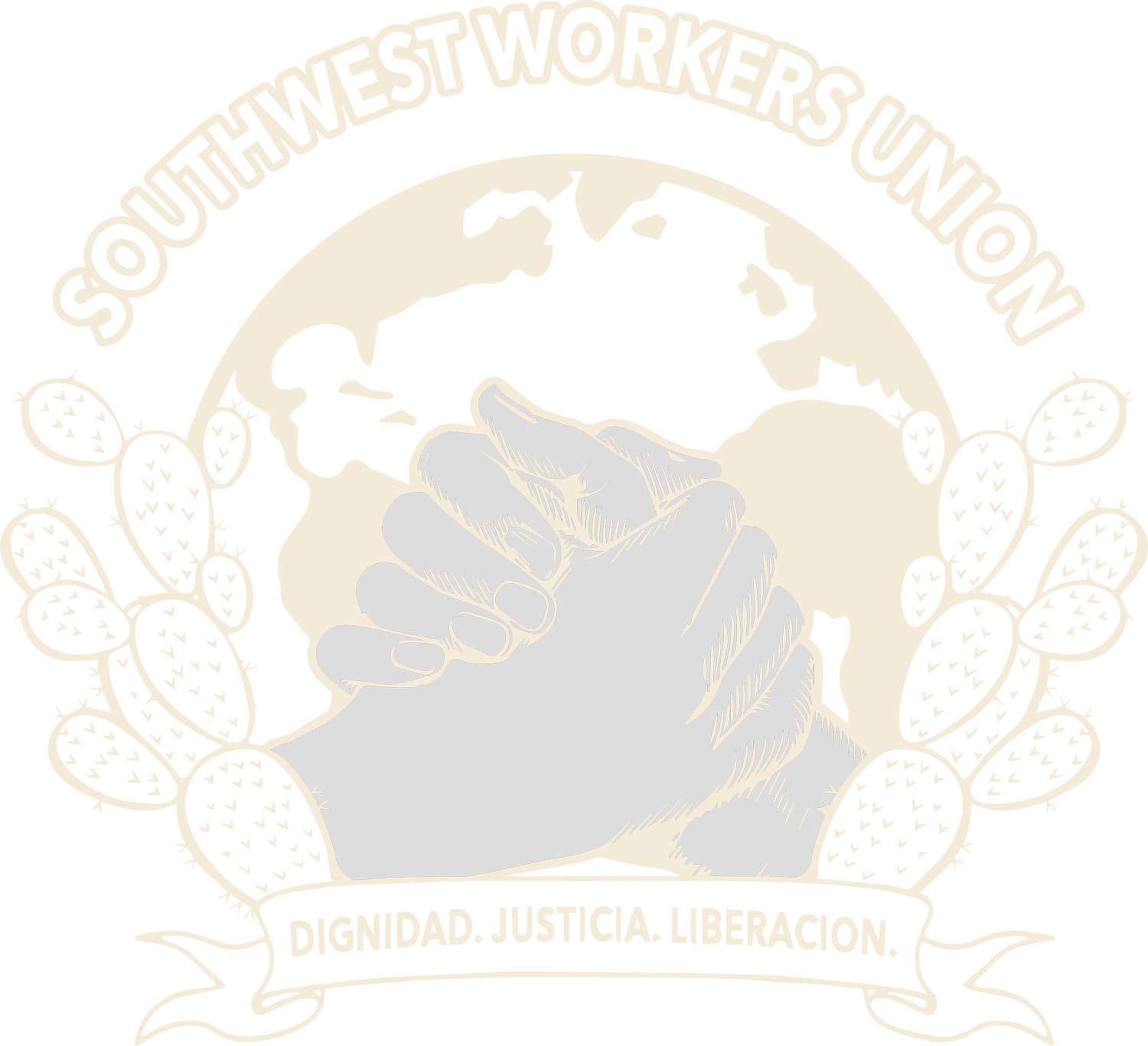Lets Celebrate A Year in Community Building: 2024 Year in Review
The San Antonio region is blessed with a resilient sun that tells us to keep the fire burning for the majority of the year, in organizing land this means around 11 months of in person and continuous programming. As the weather changes, so is our calling to shift into rest and rebuild our systems for the next year.
In 2024, the organization worked to mobilize and build better political alignment within our contact list. You can see some of our work on our blog and the day to day on our social media page. This is the short list of some of our favorite programs.
SWU recognizes leadership development as a key component to creating systemic and lasting social change, and utilizes a direct grassroots community-organizing model to mobilize and build leaders. This model integrates intergenerational and youth-led components. Our work is primarily measured by the number of people in attendance, direct sign ins or actions taken through petitioning or canvassing.
Leadership Development & Mass Base Organizing
Two Organizing School of Justice Sessions - focusing on Organizing 101, Political Analysis, Local and International Movement History, Networking and implementing organizing tools for a local campaign. The Summer focused on Heat, Racist laws, and the Fall focused on Get out the Vote education. (Summer & Fall 7 week programs)
Hosted 28 weekly Circulo de Abuelas with 10 participants sharing traditional skills. Three three workshops were offered to the community during fairs or events, and the culmination resulted in an art show. (Yearlong)
74 people were trained on civic engagement, canvassing (phone, door to door or in person canvassing) and community organizing. 25 returned to volunteer or to participate in a paid canvassing event. (Year Long)
The governance circle grew from 5 to 9 board members who were voted by the general membership. The governance circle also held biweekly sessions during 6 months to update and pass the organization by laws. This work included a deep dive into social movement histories, accountability structure, nonprofit management and member leader models. (January - May)
Distributed 875 fresh food bags to 255 households throughout 7 Community Days with the help of 88 volunteers.
Published monthly newsletters, over 10 program zines, weekly social media posts, and online blogs to engage and share our audience. 18 people helped with folding zines.
Led two nature based sessions with members. The 1st a field day with BBQ in the spring in Boerne Lake with 45 participants, the second a camping trip in July at Garner State Park with 15 participants from the Organizing School of Justice.
Hosted 6 membership meetings and an orientation aimed at creating smaller circles of leadership to discuss and plan current campaigns. Each member meeting consists of a pop ed element, the planning, and reminders or follow up. (Yearlong)
Overall the Outreach Program tried to reach 50,000 residents by phone and at the doors. We successfully talked to 9,000 residents. Out of the contacted number, 4,581 people took an action which includes attending an event, filling out a survey, volunteering or other actions. In 2024 the program outreach team trained 74 people in civic engagement tools, community organizing and local political issues.
Community Organizing around Economic and Environmental Justice
Committee to reevaluate and update the compliance codes for Metal Recycling Entities (MREs) and Used Auto Recycling Plants (UARPs): This work has included nominating community representatives for each council district, education, outreach, petition launch and attendance to actively offer suggestions to the committee. Hosted a community popular education meeting and a community input campaign engaging 21 people to take an action. (August to Present)
Heat Impact: worked with partners to monitor heat impact in multiple parts of town with the goal is to move council to take action on heat related deaths and invest in neighborhoods with higher heat temperatures as a result of long term divestment in low income neighborhoods of color. 393 people took an action related to this issue in the form of sharing their story, supporting our work, and speaking for better city policies. While major policies were not passed we see an integration of university partnerships that allows for the scientific community to use results found at the grassroots level and implement research and recommendations from an academic level.
Organizing around SB4, Operation Lone Star and the Crisis at the Border was challenging as there were consistent information changes both locally and nationally. Centro - SWU participated in petitions aimed at implementing San Antonio as a sanctuary city in the mist of racist laws. Due to the nature of our audience Centro SWU implemented security measures in all canvassing and meetings. Our team held two Know Your Rights Sessions partnering with local lawyers and supporting organizations, and launched a specialized outreach program that engaged populations affected by SB4 in their commute or workplace. 850 people canvassed became our base of outreach for sessions and supporting this programing. Our aim for this program was to target misinformation and provide direct resources to people at risk.










